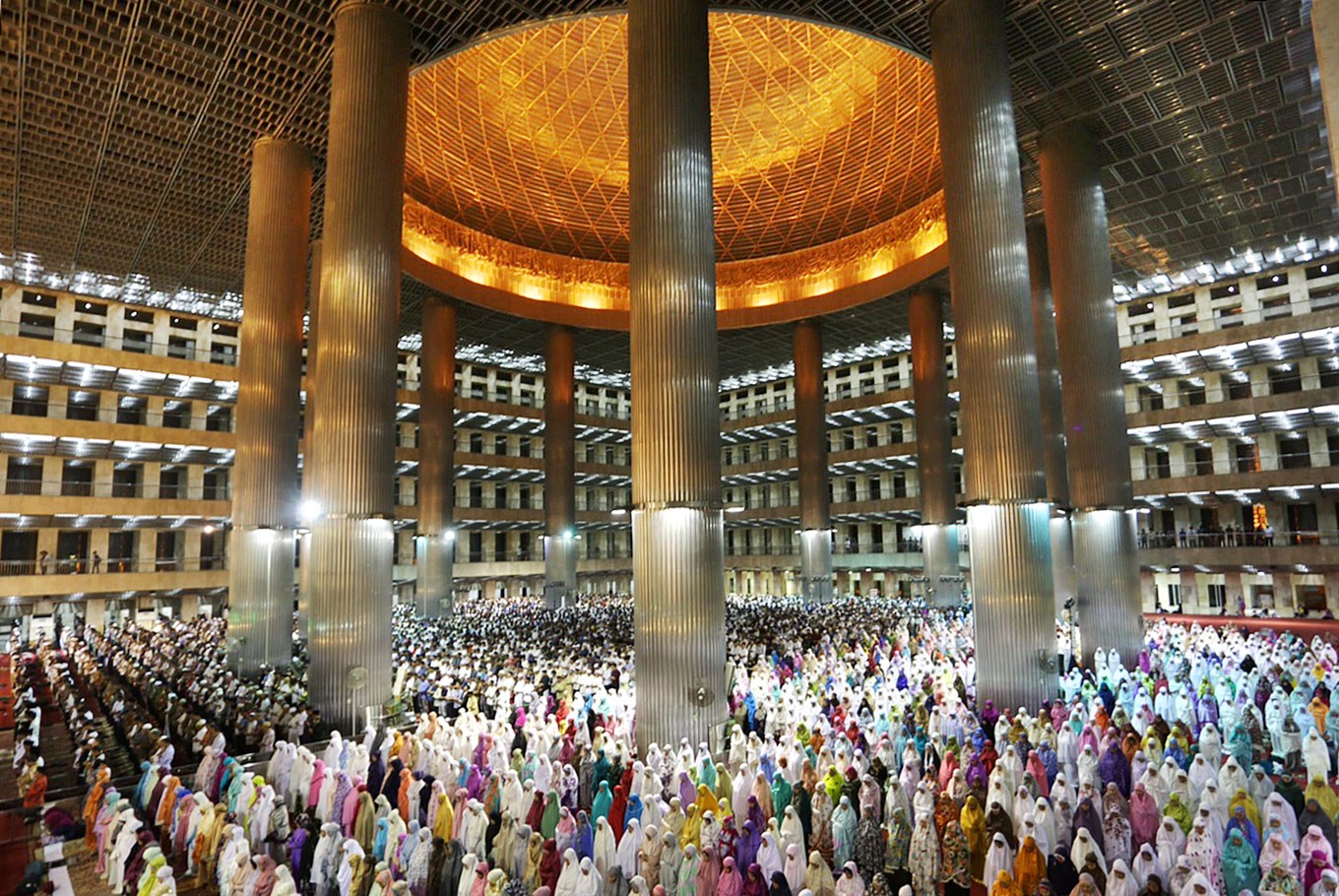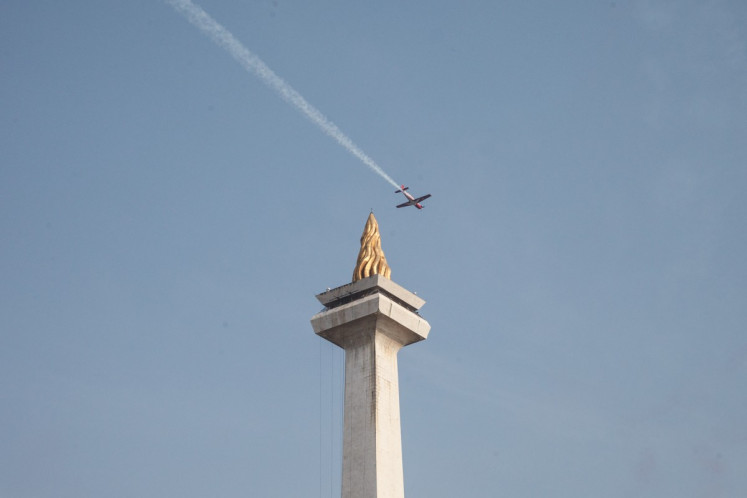Popular Reads
Top Results
Can't find what you're looking for?
View all search resultsPopular Reads
Top Results
Can't find what you're looking for?
View all search resultsLearning from an American drawn to Indonesian Islam
The most convenient way to learn about Indonesian Islam is from YouTube, which has some videos from Indonesian Muslim scholars in English.
Change text size
Gift Premium Articles
to Anyone
"Before I turned to Islam, I was living in a life of suicide." This what my friend, James (not his real name), said when I asked him about how important Islam was to him. I have been living in the United States, near Chicago in Illinois since 2014. I work in the grocery store while my husband completes his graduate studies. James, an African-American who teaches at a local high school has become one of our close friends. He is calm, kind and interesting to talk to. I have learned a lot about life in America from him. It was some time before I learned, surprisingly, how much Indonesia meant to him. Especially the kind of Indonesian Islam that I grew up with, where inner peace, tolerance and love go together; and where extremism, politicalization and tribalism that grip Islam elsewhere in the world are its enemies.
So, why did James say that before he accepted Islam his life was a kind of suicide? As he explained it, he was killing himself slowly with vanity, and with recreational romances that left him more anxious than not. “I was slowly going crazy,” he told me.
James says he has witnessed how the faith changes people. James did not convert to Islam until he met a group of students from Malaysia. He said he admired the way they treated each other, and saw that was deeply influenced by their faith. He then began to study how Islam was practiced in other countries including in Indonesia. He learned that Islamic saints, the Sunans, introduced Islam to Nusantara, in part, through wayang, traditional Indonesian puppetry. James says he admires the Sunans' cultural sensitivity and their creative approach. In James's view, Indonesians have adapted Islam to fit their long traditions.
James says he likes how we integrate Islam into our daily lives. We always invite him when we celebrate Islamic holidays and to share Indonesia’s festive foods. He loves the way we celebrate Idul Fitri rituals, he admires our gatherings or silaturahmi. He says he prefers our style of Islam to many of the Middle-Eastern expressions of Islam that are well-represented in Chicago.
My husband and I have a young daughter born in the US. James cautions me that if I want to give them a religious education while in the US, I will have to “choose my tribe”. The most prevalent Islamic religious schools, he says, are those where Middle Eastern or South Asian clerics or imams set the tone. Naturally, they are influenced heavily by the regional practices they grew up with.
In Indonesia, it is easy find Indonesia imams to help with Islamic education, but in the US, they are rare. Therefore, for James, the most convenient way to learn about Indonesian Islam is from YouTube, which has some videos from Indonesian Muslim scholars in English. But he hungers for more because he finds peace in Indonesian Islam. He told me he is also uneasy with much of American Islam, which is prone to a kind of “transnational Islam” taught by “transnational Muslims” who commodify and sell their teachings, often tinged with violent messages and hatred for others, including other Muslims and non-Muslims alike. James says while Islam has brought peace into his life, he has to resist the kinds of Islamic practices and teachings that can wreck that peace.
Living far away from home inevitably I reminisce and long for the Islam of my youth in Indonesia. Over the past four years in the US, my husband and I have tended not display our religion in public, as we might in Indonesia or when we are among Indonesian friends here. Other than with James, we rarely mention Islam. Interestingly, in talking with James, we have come to think harder about how our religion shapes us. We have also come to cherish more the kind of Islam that surrounded us growing up in Indonesia, which was a tolerant, peaceful kind that coexisted easily with other faiths, and even with practices of Islam which differed from those of our families and regions.
Furthermore, even through the eyes of people, like us, who are living far from home, it is now clear that the form of Indonesian Islam that James admires, and we cherish, is at risk. By monitoring the mainstream and social media every day, we can easily find much bad news regarding discrimination and intolerance based on religion. My husband and I worry that we may not return to an Indonesia where our children can learn how to respect, tolerate and value all Indonesians--or all people. But, rather, we will find ourselves in a country where religious teaching focuses on how to demonize others, and encourages demeaning others, and stokes violence against our fellow countrymen, even other Indonesian Muslims.
Ironically, this intolerance comes when many Muslims from all over the world are moving to new countries where they will live among a non-Muslim majority. Some of these people move by choice, while others like Muslims in Myanmar, are forced to move by violent intolerance against them, and some come because Muslims are at war with other Muslims and they seek a safer place to live and worship.










